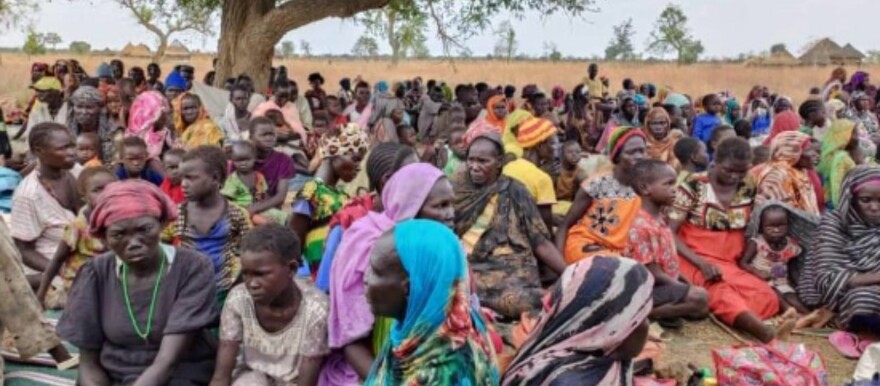The country director of the World Food Programme (WFP) on Tuesday said that the humanitarian situation of South Sudanese returnees from Sudan along the border was at a critical juncture and there was a hunger emergency looming.
Mary-Ellen McGraoarty who was addressing a UN press briefing in Geneva via video link from Juba stated that the people arriving at the border had harrowing stories of escape, including robbery and sexual violence.
“By the time they would arrive at the border, their resources had been depleted; 90 percent of families were reported to have gone for multiple days without eating. Almost 300,000 people had so far crossed from Sudan into South Sudan over the past five months,” she said. “Families seen crossing today were much more vulnerable and food insecure than those who had arrived in the early days of the conflict. A large majority of those arriving were South Sudanese. Transportation was complicated and access was difficult, especially in the rainy season. The already difficult situation was rendered even more difficult by the heavy rains.”
“Some 4,000 people from the local host communities had also been displaced by the floods and currently, there were around 12,000 people in transit centers waiting to be transferred,” informed McGraoarty.
She revealed that WFP was helping the arrivals with all it had available, including food and immediate health screening.
“Many of the returned had been living in the urban areas of Sudan for years and were now returning to mostly rural areas and did not have the necessary skills. Those people needed longer-term support to rebuild their livelihoods,” the WFP chief stressed. “As many as 7.4 million people in South Sudan had been estimated to be food insecure even before the current conflict in Sudan and the influx of impoverished returnees.”
McGraoarty disclosed that this year WFP had received less than half of the funding it needed; that meant half of the food assistance needed, and people were getting smaller rations, of less than 300 grams per day.
“WFP was pulling people back from the edge of hunger; barely saving lives was not enough, and durable solutions were needed,” she stressed. “Success stories could be seen when people were given the resources they needed. For the coming six months, WFP needs USD 526 million.”
McGraoarty said that in addition to South Sudanese returnees, there were also some Sudanese refugees arriving in Sudan and that local communities have been largely welcoming and sharing with the arrivals what they had.




